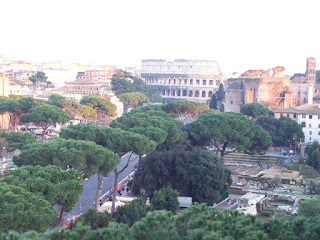I feel like I should do some reflecting on my time in England - really moving out for the first time, living in another country all on my own, going to a different school, travelling, etc. There's a lot I want to say eventually, but I don't think now is the time (as I already said, I haven't quite accepted that this part is over). I will say that I'm ridiculously excited about going to Tuebingen in a matter of weeks. As scary as it is to think about living my life in another language, it's something I've been looking forward to forever. I think I'll be more comfortable in Germany than I am here, even given the language. After all, I already have a friend there (one of my flatemates here, Susanne, goes to Tuebingen), so there will be a friendly face at the airport and someone I can go to when I have questions, not to mention an awesome friend with whom I get to spend five more months :). The school itself is supposed to be more like CofC than Uni. Nottingham, so I think it will suit me better than the massive university environment seems to to. And it will be getting warmer instead of colder, which is perhaps more important than I would have imagined it before the onset of winter here.
On a slightly different note, I should mention that for the next couple of weeks I'll be out and about, trying to see as much of the British Isles as I can. I'm meeting my dad in Edinburgh, Scotland on Thursday, after I leave Nottingham. We're spending a few days there, then doing a tour of Ireland. On the 30th I go to London to meet up with Kathleen before she goes to Spain. And finally, I get back to Philly on the 3rd of February.
I'll leave you with a couple of photos from my recent pilgrimmage to Stratford upon Avon (where Shakespeare was from).

Me and Shakespeare.









